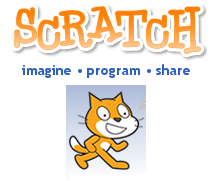With the recent SOPA (HR 3261) and PROTECT-IP (SB 968) bills making their separate ways through Congress, I asked myself, “Why do people continually consume media by corporations whose only perception of its patrons is that of a passive consumer. Ignorance? Complacency? Apathy? Naivety?”
Since I have made my own switch to a more participatory culture (one that encourages my involvement instead of stifles it), I have found my media engagement to be considerably more fulfilling.
Two major proponents of participatory culture are FLOSS (Free, libre, open source software) and the Creative Commons.
For those that wish to join me, and the millions of others who have already made the switch to abandon commercial, consumer, mainstream, and mass media, here is a small guide, starting with audio, to help you with that process. I will also be documenting this guide on a similarly titled page.
Audio/Music
- Archive.org’s Audio Collection – A huge collection of music, lectures, and everything else that can be recorded via audio. Archive.org has partnered (one of many) with etree.org to archive many of their collections of trade-encouraged and freely recorded works.
- WFMU – Freeform, commercial free, listener supported radio station of the nation. The fun 91. They archive and have made accessible (almost) every show their DJs have played since the year 2000. That’s over 96,000 hours of audio for you to enjoy.
- Free Music Archive – A Creative Commons, public domain music curated collective.
- etree.org – The award-winning leader in lossless digital audio distribution on the Internet. They are a community committed to providing the highest quality live concerts in a lossless, downloadable format.
- Bandcamp – A website that allows artists to distribute and sell their audio and merchandise directly to fans. Not all of Bandcamp’s content is Creative Commons licensed, but they do also support these artists. You can find some who are by searching tags creativecommons and creative commons. Hopefully this will improve in the future.
